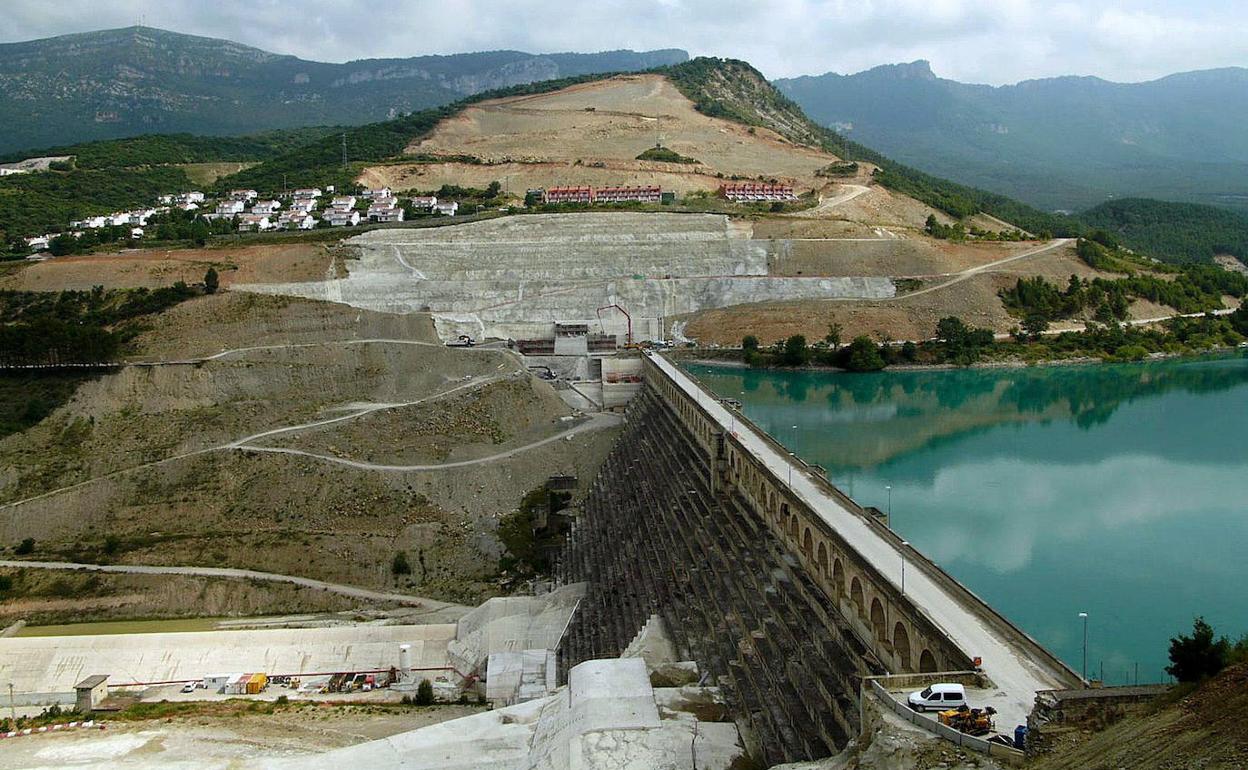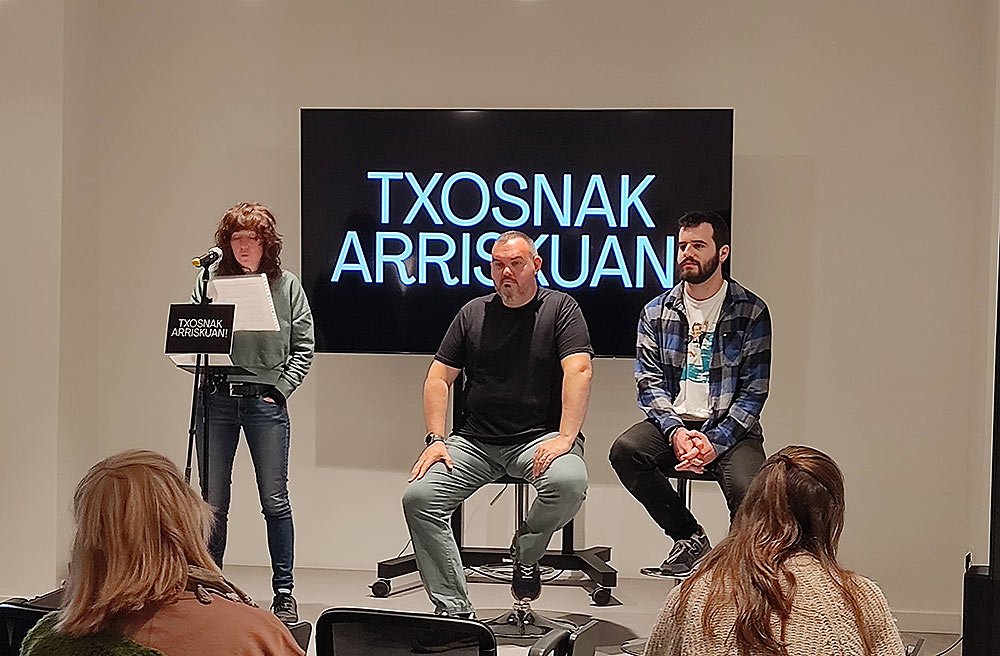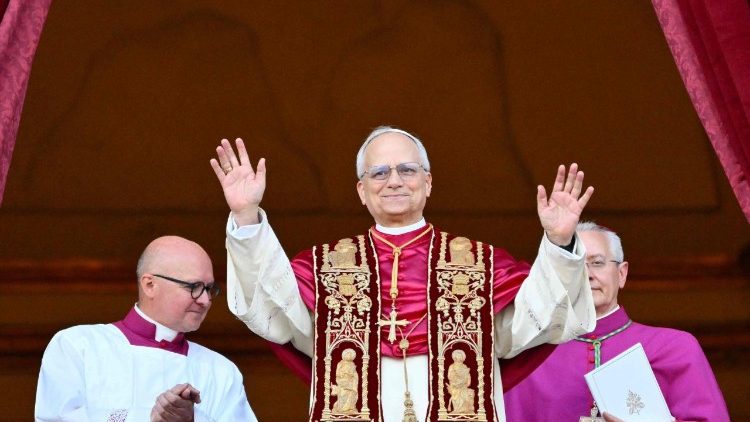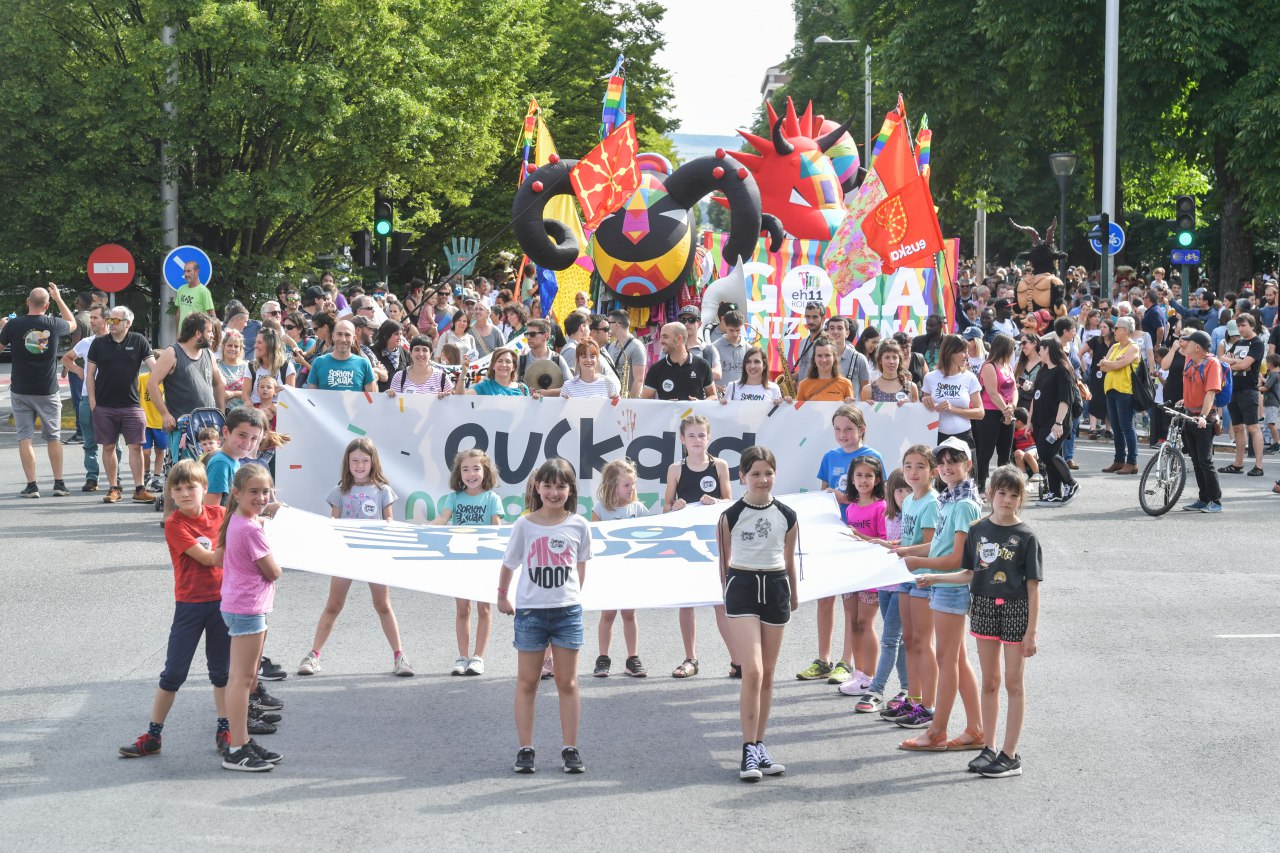A world without going through Spanish and English
- On April 17, at the Casa de Cultura Biteri de Hernani improvised songs were combined with four minority languages: From Sardinia to Simone Monni and Paola Dentoni; Zinar Ala kurdo; from the Catalan Countries to Christian Simelio and Anais Falco and their Arrate Illaro and Maialen Lujanbio. Next tasks: April 20 in Pamplona, 21 in Markina-Xemein, 22 in Uztaritze and 23 in Aramaio.
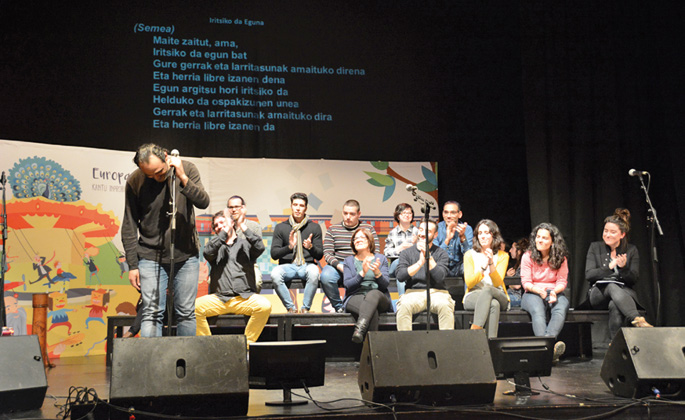
In the Gulf we take some of that makeshift song which is made in the four minority languages of four stateless peoples. And the joy, the warm complicity of the speakers, as Maialen Lujanbio pointed out in the initial and final greetings, we enjoyed a performance that was not “worldwide, but universal” and that was possible “without necessarily passing through Spanish and English”. After the improvisers were finished, we read the abstract in Basque on the back screen. In this way, we continue with live activity at a good pace.
We joined Zinar Ala, as the Kurdish living in Germany told us that our collaboration is mandatory for the public, using all the words in Basque he knew, as the Spanish embassy in Ankara did not allow the presence of the two Kurdish improvisers. It is understandable that the Kurds should have a song that is often painful, that through dengbêja the history of the people and the impossible loves should be devoured, as we heard in the seated verses.
The Sardinians, on the other hand, also addressed the daily issues, extended as if they were centered on the free environment: life in the countryside and the city. The most amazing thing for the audience was singing. As the singers improvised, behind them were the basic chords with very serious voices, dressed by two coreners (Stefano Cara and Michele Deiana). Each singer gives the same idea in different ways, and in the solemnity of the melody the young Simone Monni used a fine irony, singing, for example, that along with the beauty of spring, cement rapidly spreads to pastures (brawls? ). ) metaphorically. The action also helped us to realize that here and there are the small daily struggles (in this case, that of food sovereignty), since Paola Dentonio ended up remembering that action “we do not have to leave the field because it is the land that gives us food”.
The Catalans sang glosas, garrotinas and corrandas, accompanied by a small sound by Gerard Díez. The audience sang each other's slogans. They did not miss the opportunity to use the references they share with the Basques. The most political verses sang them, dressed in blows of humor. For example, Maite Berriozabal gave Christian Simelio the theme of working alone: “You’ve been a thief, but you’ve decided to start working.” Simelio said that it is now more legal what he does, “you will understand it, I’m a PP councillor.” We saw that the way of raising the issues and putting them into practice is very similar to that of the bertsolaris here. Proof of this was the performance of Anais Falco and Maialen Lujanbio, both in a corranda tone, and that Lujanbio did not need a translator, so both responded to each other. It was one of the highlights of the performance.
The Arrate Illaro programme with Simone Monni de Sardinia also left a good result.
The final farewell rounded off the performance, as everyone sang in the same melody as in the Catalan countries, each accompanied by instruments from their country. Together not just the stage, but the result of sharing all day. If you've noticed a big leap in complicity from the first to the second, in the way of sewing improvised songs with others, what will the next performances look like? Do not miss the opportunity to live or at least watch it on video bertsoa.eus.
BRN + Neighborhood and Sain Mountain + Odei + Monsieur le crepe and Muxker
What: The harvest party.
When: May 2nd.
In which: In the Bilborock Room.
---------------------------------------------------------
The seeds sown need water, light and time to germinate. Nature has... [+]















